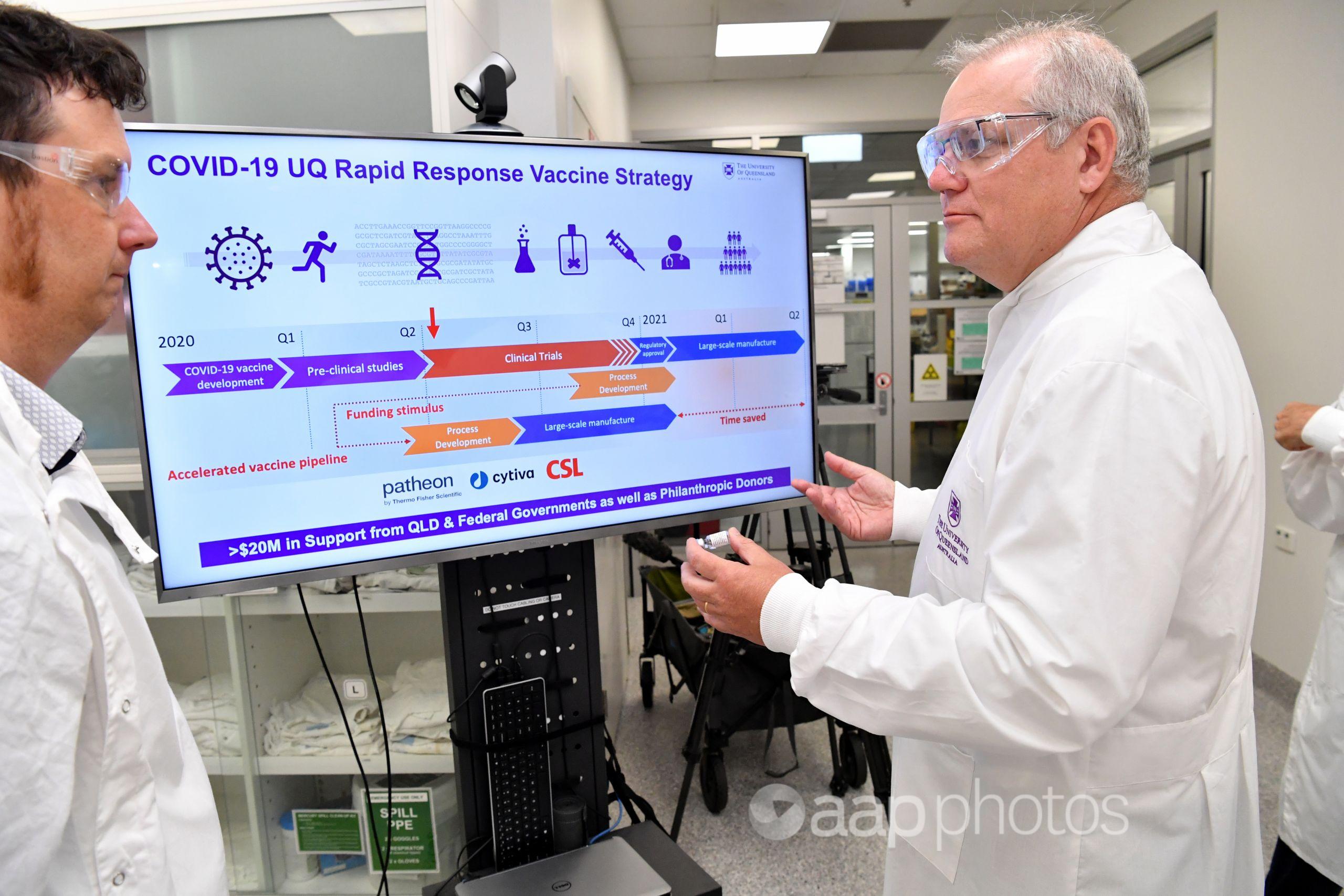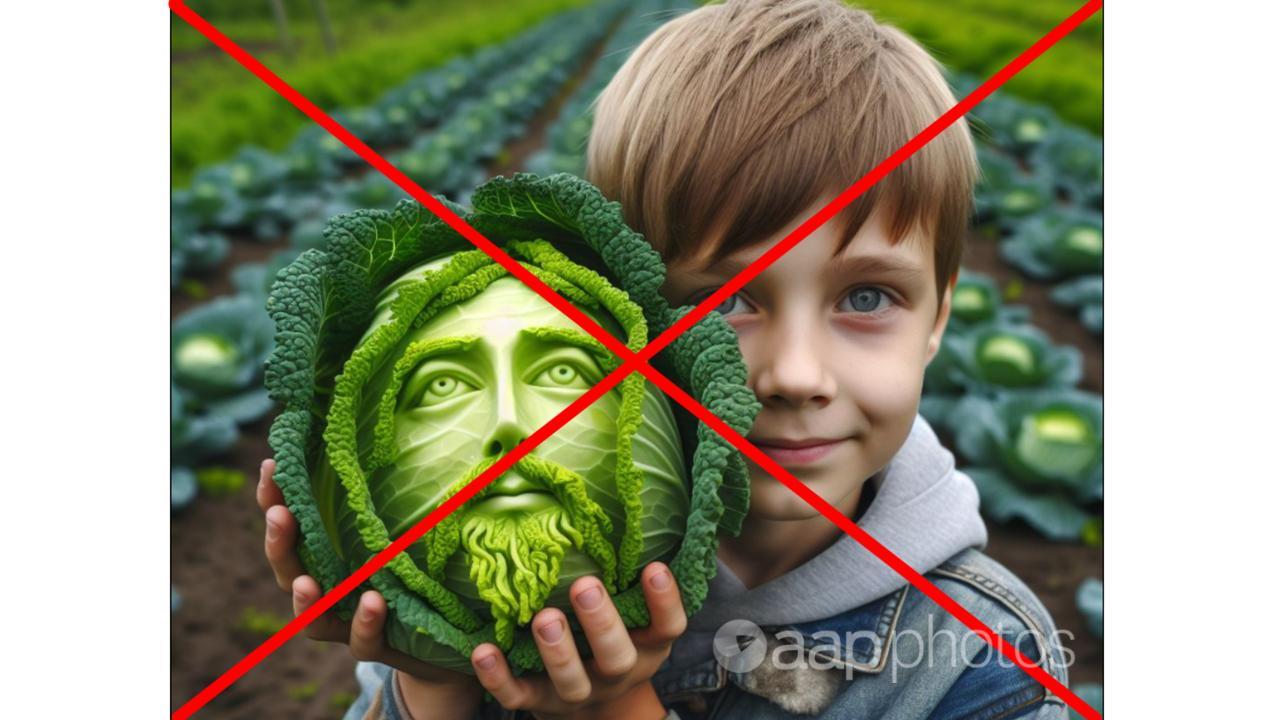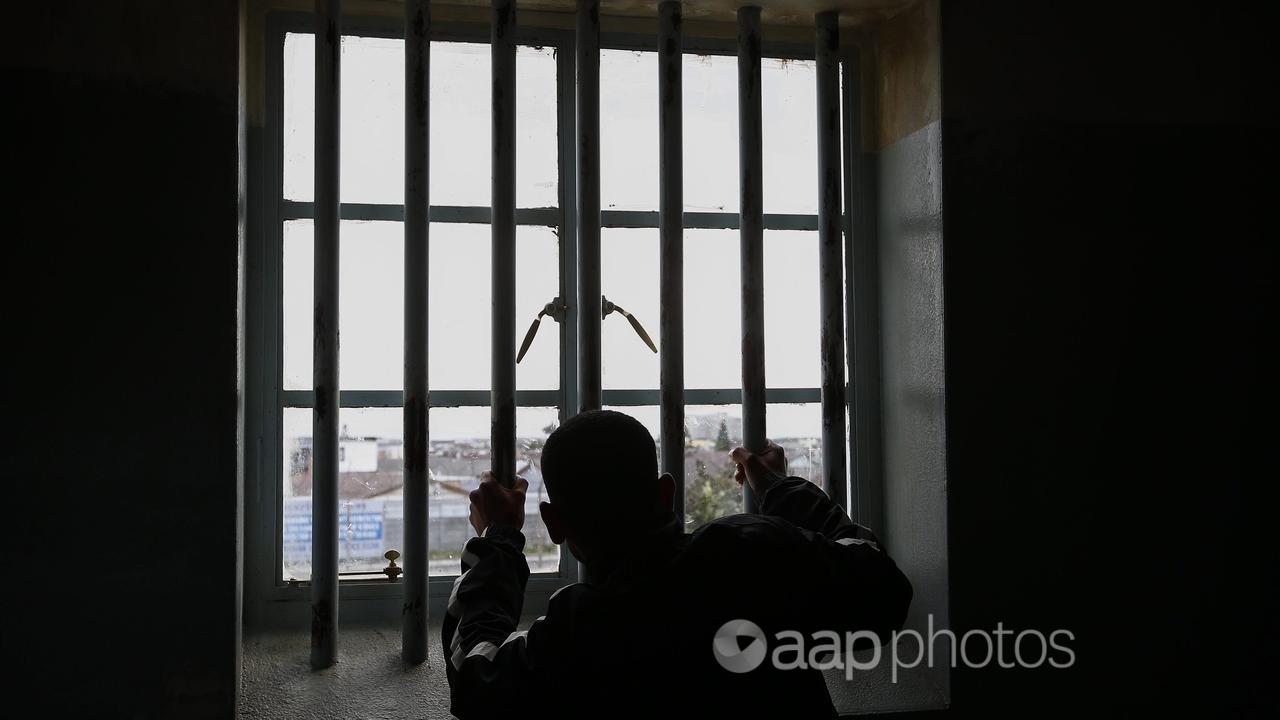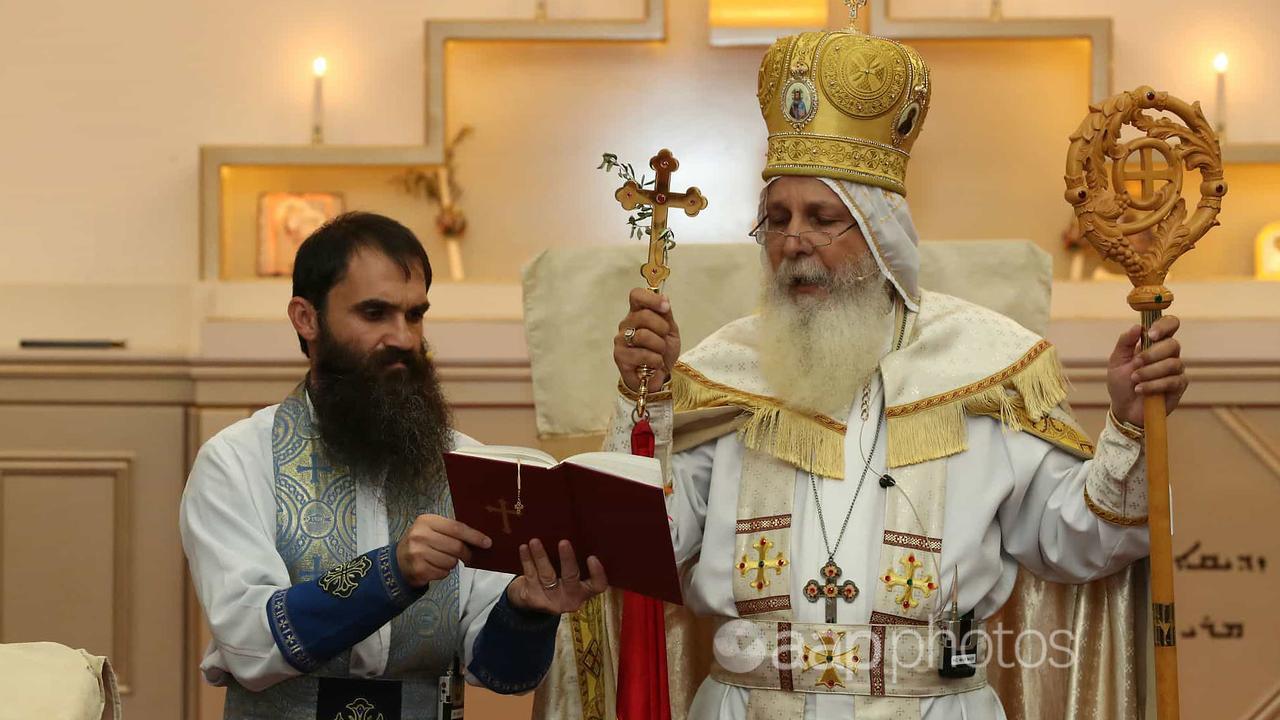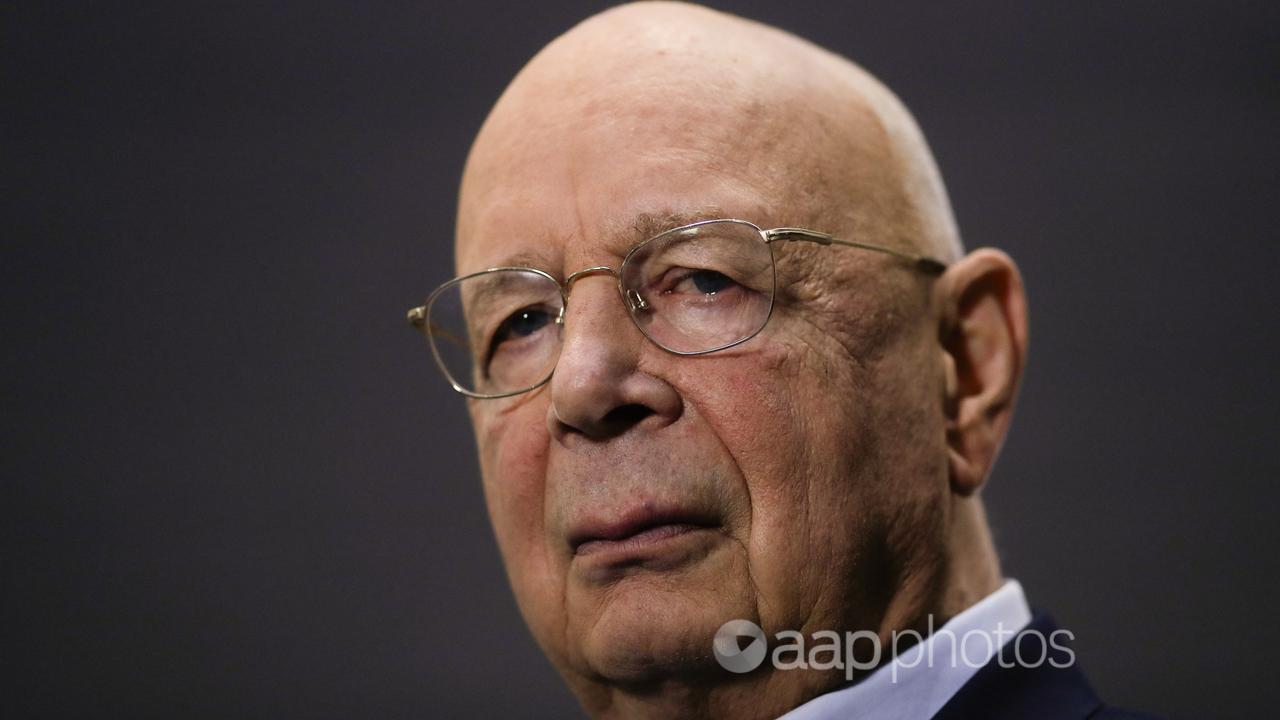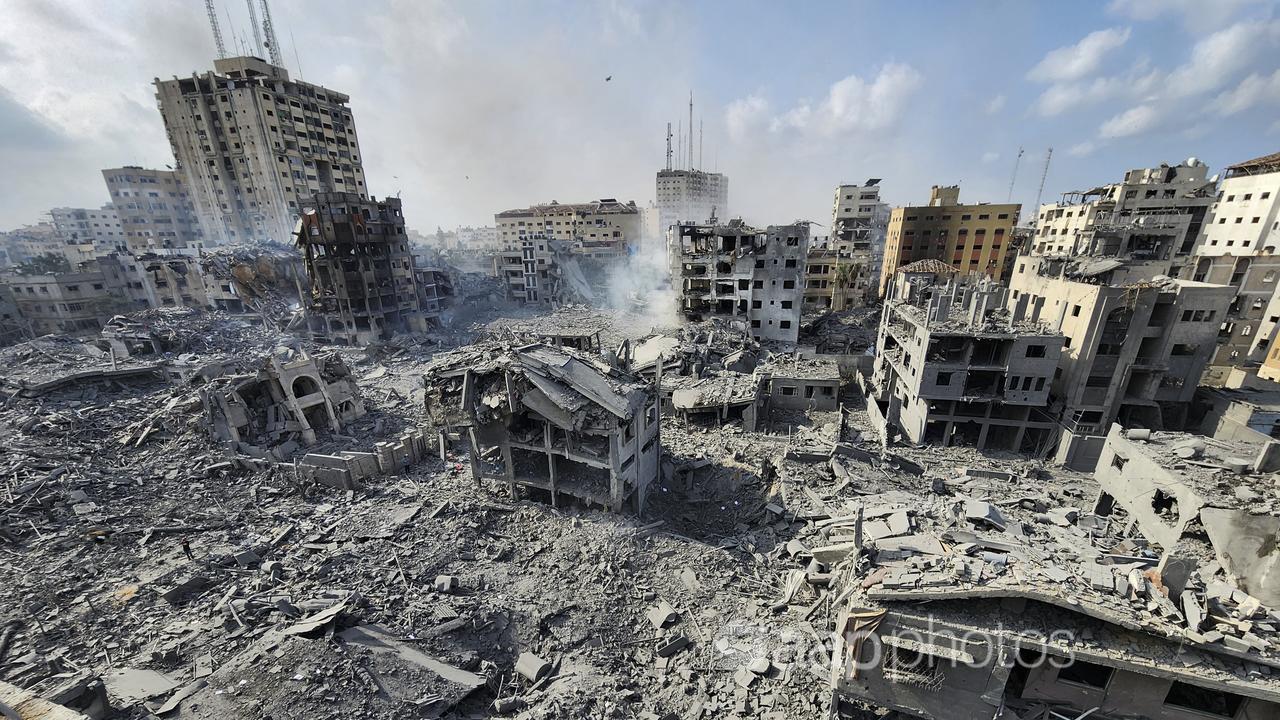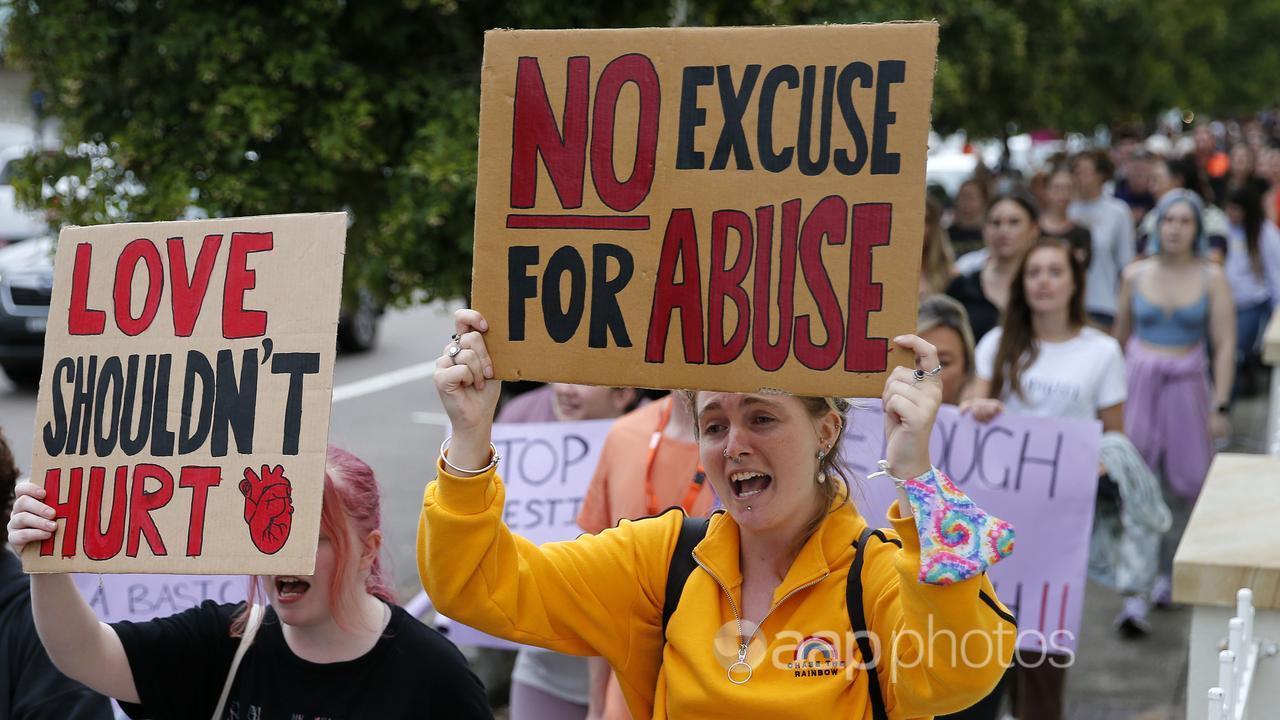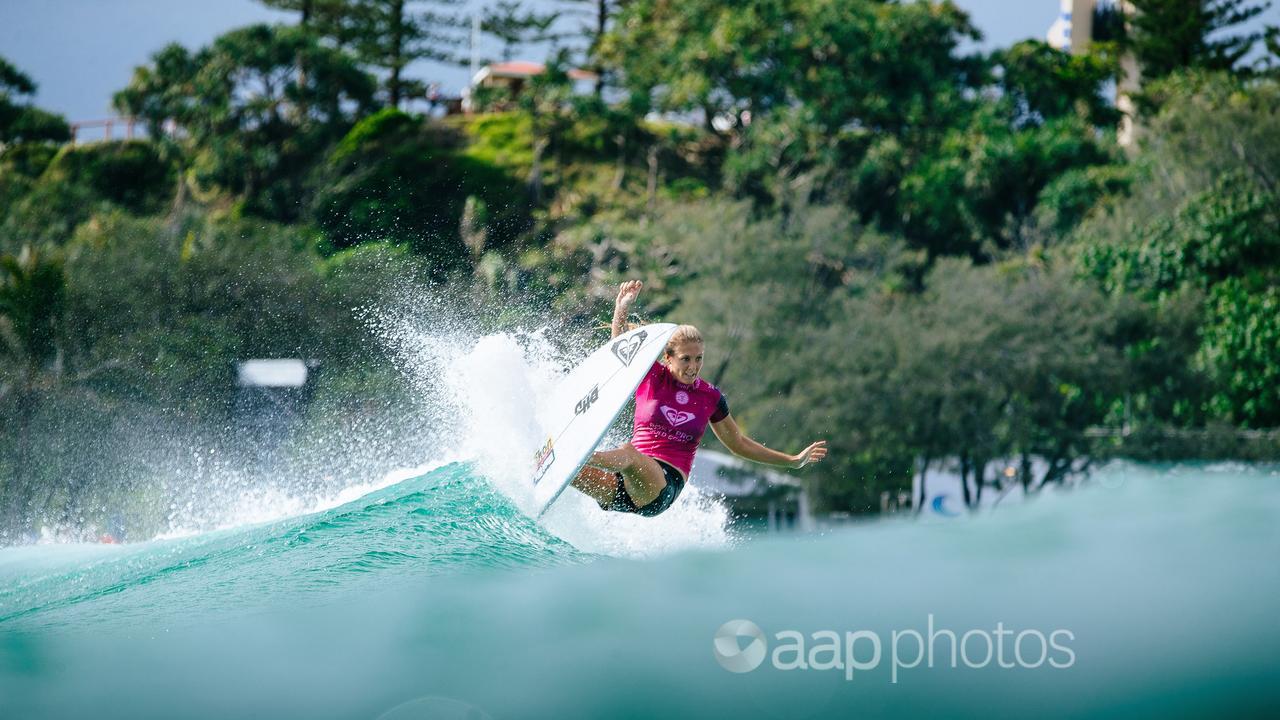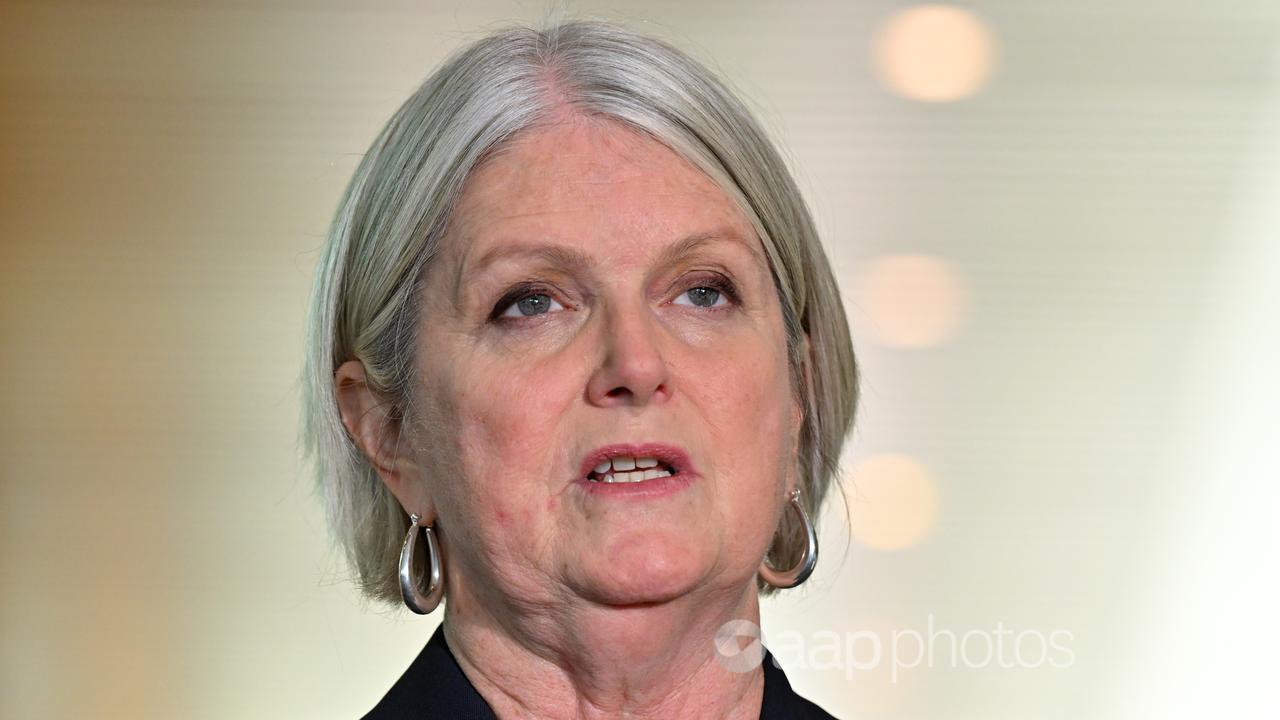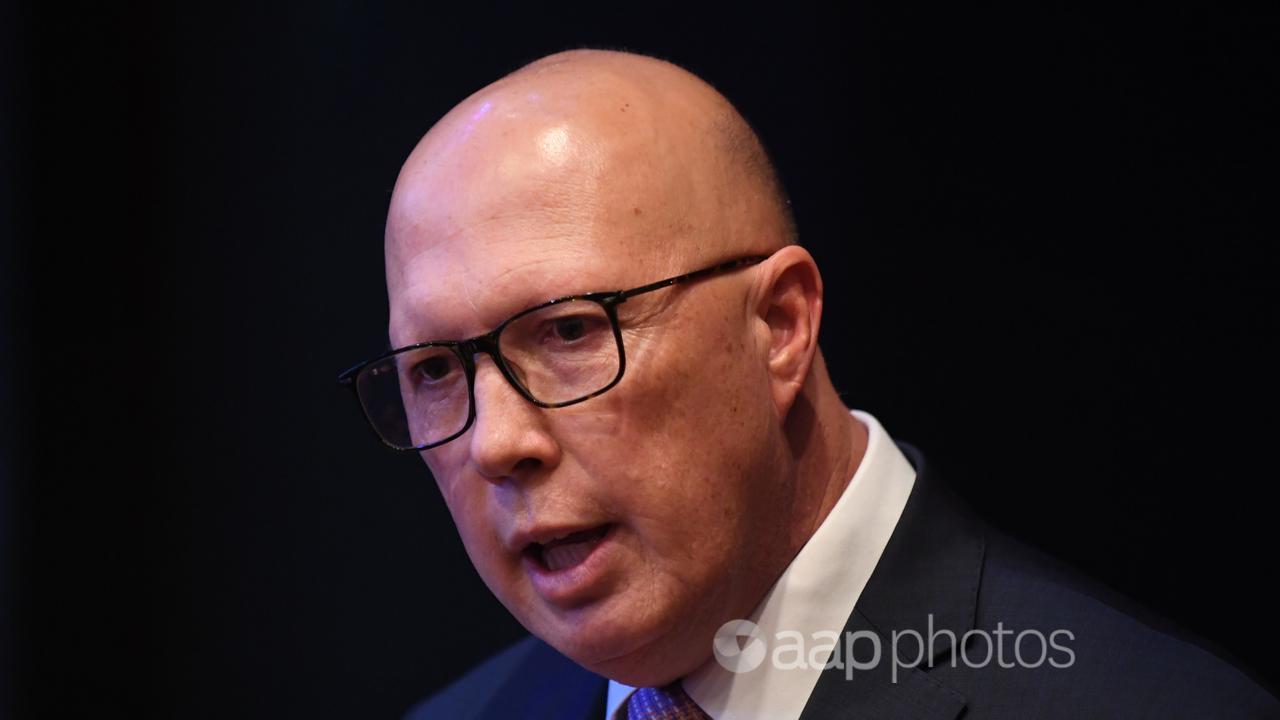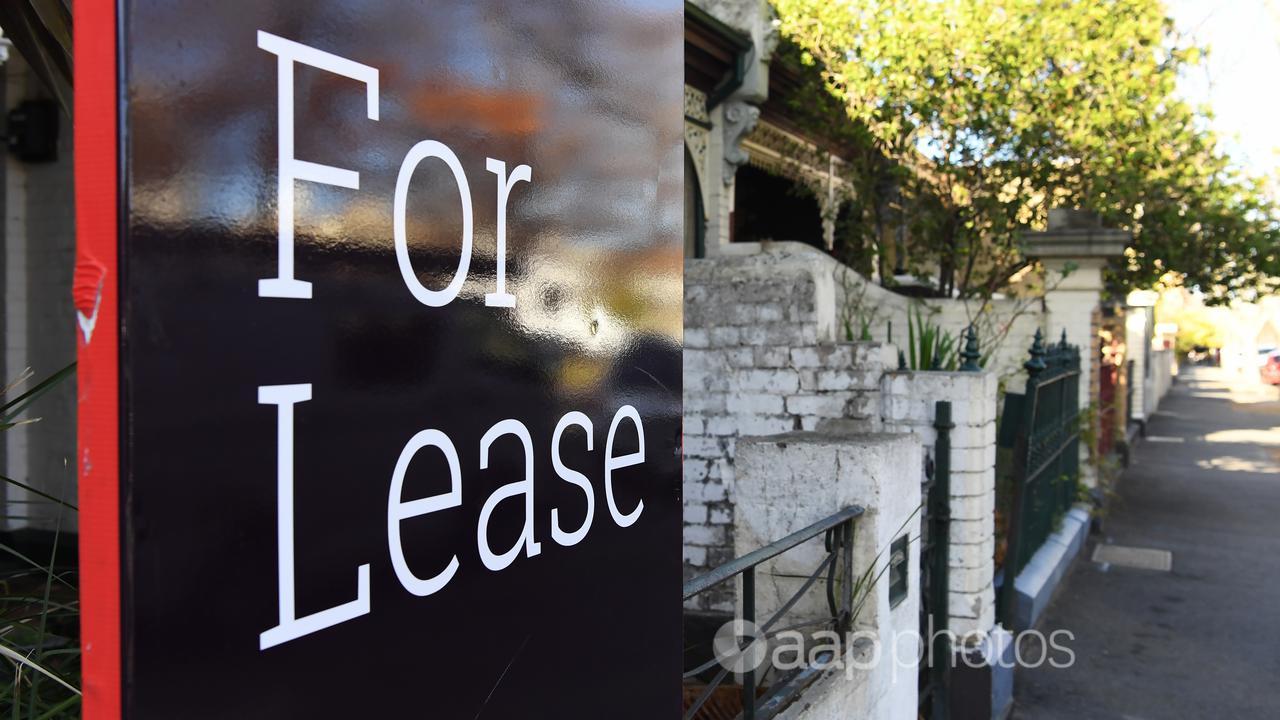The Statement
A video shared on social media claims the Australian government allocated around $700 million for the University of Queensland’s potential coronavirus vaccine despite the university failing to meet a “peer review” benchmark for the funding.
The video on the Facebook page of Riccardo Bosi, a former army lieutenant-colonel and political aspirant, features an excerpt from an episode of his YouTube talk show with Joel Jammal in which they both discuss Australia’s COVID-19 vaccine plan.
Mr Bosi claims that Australian Prime Minister Scott Morrison “put 700-odd million dollars into a vaccine that scored three out of seven out of Queensland” (video mark 55sec).
He goes on say that research candidates “need to score four out of seven out of peer reviews and have produced a vaccine before you get that level of funding”.
Mr Bosi goes on to claim: “We know that the (PCR) test doesn’t test for COVID. The designer of the test – the CPR, CRP (sic) – we know the test is bogus and yet this imbecile and his mates in the States are rolling it out. The test is meaningless.” (video mark 1min 37 sec).
At the time of writing, the January 11 post had been viewed more than 170,000 times and shared over 4000 times, attracting more than 5,600 reactions and 1,200 comments.
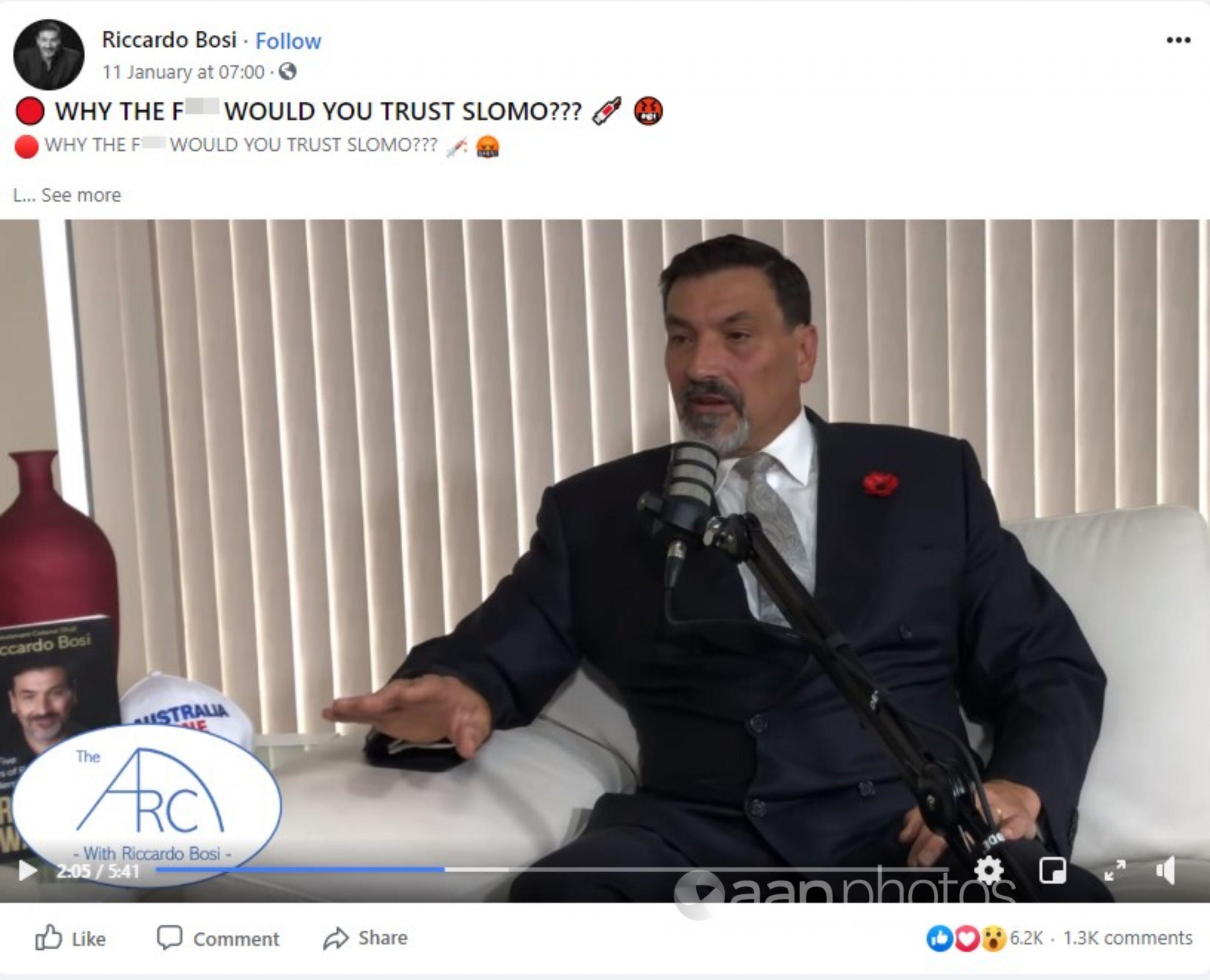
The Analysis
The Australian government invested only a tiny fraction of the claimed $700 million in the University of Queensland’s unsuccessful COVID-19 vaccine candidate, which it says met all requirements for the allocated funding.
Australia is due to roll out COVID-19 immunisations in mid-late February with priority given to health, border control and aged-care workers.
Before announcing the plan, the government entered into four vaccine supply agreements, with Pfizer/BioNTech, University of Oxford/AstraZeneca, Novavax and Gavi’s COVAX Facility.
It also granted $5 million in financial support for a vaccine candidate developed by UQ, however clinical trials did not proceed to phase three after several phase one trial participants returned false positive HIV test results.
The Queensland government also allocated $10 million to the UQ vaccine program on top of the federal government funding.
A federal Department of Health spokeswoman confirmed to AAP FactCheck in an email that UQ vaccine applications were awarded research grants of $5 million.
“In 2019-20, $5 million was allocated through the Medical Research Future Fund for research supporting the development of the University of Queensland vaccine,” the department spokeswoman said.
According to the government’s grants portal, the UQ vaccine program received a $3 million grant in April 2020 and a near-$2 million grant in June 2020.
The UQ candidate was developed in partnership with Australian biotech company CSL, which would manufacture the product if it was successful. CSL announced the agreement in a press release – and confirmed the federal government’s $5 million funding.
Regarding to the claim of “peer study” benchmarks for funding, a spokeswoman for the National Health and Medical Research Council (NHMRC), the Australian body which funds medical research, told AAP FactCheck in an email that it a seven-point scale was used to assess grant opportunities, and applications are considered for funding in rank order based on those scores.
“Whether the grant opportunity sets a minimum score that must be achieved depends on the objectives of the program. If a minimum score must be met, it is specified in the published grant guidelines for each grant opportunity,” she said.
“UQ was awarded funding of $5 million for COVID-19 vaccine development through two Medical Research Future Fund grant opportunities, with one using the seven-point rating scale and the other using a three-point rating scale.”
A UQ spokeswoman told AAP FactCheck in an email the university “had not been advised of any scoring or ranking information” as part of its vaccine grants.
The Department of Health spokeswoman said the outcomes of evaluations made by grant assessment committees were confidential.
“However, the University of Queensland’s applications for funding met the requirements of the Grant Opportunity Guidelines. Any applications that failed to meet these requirements of the (guidelines) would be ineligible for funding under that grant opportunity,” the spokeswoman said.
Before UQ clinical trials were halted in December, the government had announced an investment of $1.7 billion to pre-order 84.8 million doses of UQ and AstraZeneca vaccines.
A Department of Health spokeswoman told AAP FactCheck that details on the UQ deal was “commercial in confidence”, however media reports said the agreement was worth $1 billion for 51 million doses. The UQ purchase did not proceed as the planned vaccine trials were aborted.
AAP FactCheck sent a number of questions to Mr Bosi regarding his claims but received no response.
The suggestion the inventor of PCR tests said they were ineffective at detecting COVID-19 has previously been debunked, as has misinformation about false positives rendering testing results meaningless and tests not being able to distinguish between COVID-19 and the flu or common cold.
Dr Ian MacKay, a virologist from the University of Queensland previously told AAP FactCheck PCR tests used to detect COVID-19 infections in people were “extremely effective at very sensitively and specifically detecting SARS-CoV-2”.
“The leading tests have also been tested on SARS-CoV-2 RNA from infected patients, isolated and grown in cells in the lab – so we know it is this virus that we’re detecting,” he said.
AAP FactCheck previously debunked claims in another video on Mr Bosi’s Facebook page that the Prime Minister helped president-elect Joe Biden “violate the Logan Act”.
The Verdict
The University of Queensland has not received around $700 million for its COVID-19 vaccine research. Both the university and government told AAP FactCheck the program received only $5 million in federal funding, a figure backed up by published grant information.
There is no evidence that the vaccine program failed to meet grant guidelines as claimed, while the video also shares debunked statements about the effectiveness of PCR tests in detecting COVID-19.
False – Content that has no basis in fact.
* AAP FactCheck is an accredited member of the International Fact-Checking Network. If you would like to support our independent, fact-based journalism, you can make a contribution to AAP here.
All information, text and images included on the AAP Websites is for personal use only and may not be re-written, copied, re-sold or re-distributed, framed, linked, shared onto social media or otherwise used whether for compensation of any kind or not, unless you have the prior written permission of AAP. For more information, please refer to our standard terms and conditions.

